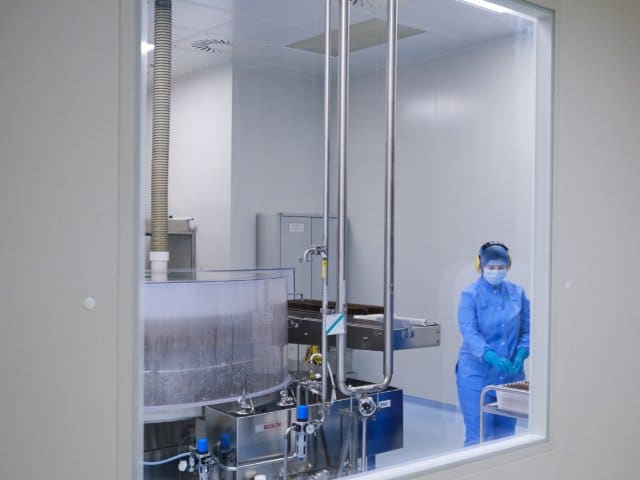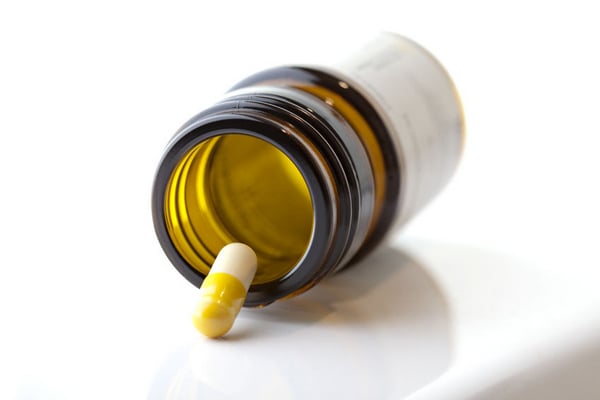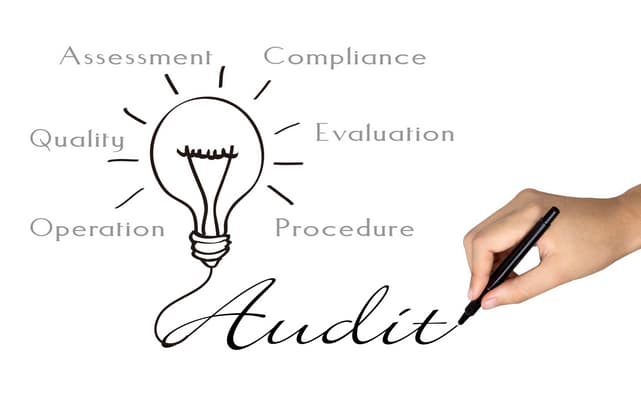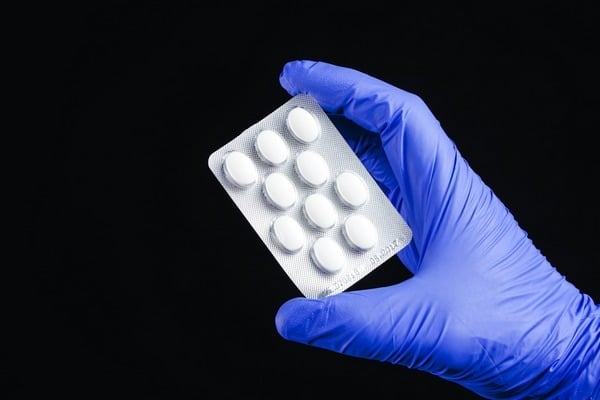GMP inspection (Definition)
A GMP inspection (‘GMP compliance audit’) will generally involve an onsite visit by a specially-trained Inspector/Auditor; who examines various components of the manufacturer’s Pharmaceutical Quality System (PQS). The GMP inspection generally includes, but is not limited to, reviews of manufacturing procedures (SOPs) across the product lifecycle, supplier qualification procedures, facilities and equipment including validation, documentation (e.g. flow charts, batch tracing records, laboratory testing reports), deviations handling (CAPA systems), complaints monitoring systems, recall procedures, and employee training programs.

Timeframes: how long does a typical GMP inspection take?
- The inspection (GMP compliance audit) may be held over a single day or over several days.
- The GMP inspection is followed by a formal inspection report detailing specific areas of non-compliance as well as areas for improvement.
- GMP non-compliance issues may be called ‘audit findings‘ or ‘inspection findings‘.
- Manufacturers should address non-compliance issues in a timely and appropriate manner.
What happens after receipt of an inspection report that identifies non-compliance issues?
Follow-up site visits and/or subsequent communication between the Inspector and the site’s Owners and/or Quality Department is typically required; particularly where serious GMP non-compliance issues are identified during the inspection.
- Quality Risk Management (QRM) principles, detailed investigations, CAPA system reviews, and change controls are often required.
- Investigations, corrective actions/control measures to address non-compliance audit findings should be fully documented.
- Period reviews of the PQS and investigations into the effectiveness of control measures are required.

FAQs on GMP Audits
Frequently asked questions in relation to Good Manufacturing Practice (GMP) Inspections/GMP compliance audits
FAQ#1: Are GMP inspections always pre-scheduled — or are ‘surprise inspections/unexpected GMP audits’ common?
- Many GMP inspections are scheduled and announced prior to the Inspector’s arrival at the facility/manufacturing site.
- However, GMP compliance audits and site inspections may also be unannounced.
- Remote inspections are a growing option for GMP audits during the pandemic.
Manufacturers should be ready for a GMP inspection/GMP audit at all times.
- Click here to learn How to Prepare for a GMP Inspection/GMP compliance audit.
- Induction training for Employees and/or Regulatory Authority Auditors involved with GMP compliance inspections, remote audits, and other GMP compliance audits including onsite and remote auditing training
FAQ#2: What is the primary purpose of a GMP inspection?
- The purpose of an onsite GMP compliance inspection (“self-inspection”) and/or remote GMP audit by a Regulatory official is to investigate compliance with Good Manufacturing Practice (GMP) regulations and product-relevant guidelines (e.g. compliance with quality standards including data integrity).
- A remote ‘virtual’ site visit and remote audit/remote GMP compliance inspection (or desktop audit) may be a suitable alternative when a Regulatory Authority representative (or 3rd party) cannot travel to a manufacturing site to conduct the onsite GMP inspection/GMP compliance audit.
FAQ#3: What is meant by a ‘hybrid GMP audit’ (‘hybrid inspection methods)?
Hybrid GMP inspections (hybrid GMP audits)
Hybrid GMP audits (regulatory compliance inspections, conducted partially onsite and partially using desktop auditing methods/ICT) are growing in popularity in 2020 and 2021, in response to the impact of the pandemic.

FAQ#4: Are remote GMP compliance inspections increasing during the Covid-19 pandemic?
Estimated frequency of remote auditing in GMP environments
- Yes, remote inspections and ‘desktop audits’ are increasingly being used as an alternative auditing option, when site visits are untenable.
- The ratio of onsite GMP audits vs remote audits is currently fluctuating.
- Onsite audits remain the preferred method; however, the benefits of remote auditing are leading to global changes in auditing schedules and auditor training requirements.
FAQ#5: Are there special requirements for conducting a GMP inspection remotely (remote auditing) including auditor training for conducting a remote site inspection?
- If a remote GMP audit/compliance inspection is being planned, certain measures must be put into place to ensure data security and investigation integrity.
- Click here for Remote GMP Audit Planning resources and remote auditing checklists.
FAQ#6: What if there is a delay in responding appropriately to non-compliance audit findings in the GMP Audit Report?
Consequences of GMP compliance breaches
Failure to remedy identified non-compliance issues in an appropriate, timely manner, could lead to a loss of manufacturing licences/marketing approvals, forced facility closures, and/or criminal charges/jail time for owners and other responsible persons.
FAQ#7: How are GMP auditors/inspectors trained?
Required skills for auditors:
Required knowledge and skills for GMP auditors/Quality Department inspection personnel include — but are not limited to — keen observation skills, rapport-building skills, interviewing skills, analytical skills, investigative skills, report writing skills, organisation skills, ICT knowledge, and experience in GMP compliance and regulated industries.
GMP compliance inspector training and internal auditor training
- A GMP inspector is also known as a ‘GMP compliance inspector’ and/or ‘GMP compliance auditor’ and should have special training in conducting GMP audits and remote inspections.
- Internally, the Quality Team and/or Department Team Leaders will be required to conduct self-inspections as part of their quality management system.
- Learn the top 10 GMP compliance deficiencies/audit findings during GMP compliance inspections.
FAQ#8: What do GMP inspections involve?
GMP inspections may involve:
- pre-scheduled inspections as well as unannounced inspections
- Auditing Agendas/Inspection Agendas
- GMP auditing checklist(s)
- References to regulations (such as the FDA’s CFRs, the TGA’s Therapeutic Goods Act) and guidance documents from PIC/s
- Guidance publications from relevant Regulatory Authorities regarding expectations for Pharmaceutical Quality System (PQS) and other pharmaceutical manufacturing controls
- A GMP Inspection/GMP auditing report that may detail:
- Areas for improvement
- Audit findings and/or warning letters
- Citations and or directives to cease production and/or close a facility (for example, if serious GMP breaches and/or repeated GMP breaches are discovered during a GMP inspection)

FAQ#9: What is the value of an inspection checklist (GMP audit checklist)?
GMP Audit Checklists (value):
- Checklists help ensure a consistent approach to inspections.
- Help ensure that crucial aspects of manufacturing are appropriately investigated during an inspection, based on QRM principles.
- Example: are employees appropriately qualified and trained in GMP compliance? Are products being manufactured according to regulations for sterile manufacturing?
GMP inspection checklists can vary, however, depending on:
- types of products being manufactured (e.g., based on the product risk profiles)
- the history of the manufacturer/manufacturer’s reputation
- prior GMP inspection findings/audit findings
- other factors.
FAQ#10: How are guidelines and checklists used during GMP inspections?
Auditing guidelines used during GMP compliance inspections:
GMP guidelines provide a framework that manufacturers can use to implement specific measures and quality controls in order to meet expected quality, safety and efficacy standards for medicinal products including pharmaceutical products, medical devices, and biological medicines.
Additional documents published by regulators such as the FDA, TGA, MHRA, EMA etc. can provide “interpretative guidance” (these are called “Aide Mémoires (AiM)” — and are useful to help manufacturers know what will be expected during a GMP inspection of their facilities, equipment, processes, employees/personnel records, contracts/GMP agreements/technical agreements/contractor audits, quality monitoring systems, and other quality controls.
Overall, a GMP inspection helps verify that a manufacturing organisation and its employees, contractors, and suppliers are consistently meeting expected quality standards during every stage of manufacturing and distribution.
Summary of Benefits of GMP Inspections
A GMP inspection helps to ensure a product “released to market” is safe and effective to use by patients and other consumers; including proper packaging and labelling.
These inspections serve to verify that expected quality standards are being met by manufacturers and their distributors during all steps in the manufacturing process.
These quality standards (GMP regulations/GMP guidelines) are published by PIC/s and other Institutes, Agencies and Regulatory Authorities (examples: FDA, TGA, EMA, MHRA).
Review the list of Regulators that conduct GMP compliance inspections/audits.
Need to get your Employees trained in GMP compliance and auditing?
Learn what to expect during a GMP inspection by a regulatory authority:
- Register for a convenient online GMP auditing training option.
- This package includes four (4) online GMP training sessions relating to GMP inspections and compliance auditing requirements.
- Induction to GMP Auditing and Compliance Inspections (suits wide range of employees as well as Auditing Professionals/Regulatory Authority representatives and includes Remote Auditing skills training/ICT checklists.
- Training duration: Allow 5 to 7 hours to complete all four courses in the auditing induction module.
Recommended courses for GMP industry professionals and GMP engineers in the pharmaceutical or medical device manufacturing industries
Pharmaceutical Manufacturing Fundamentals (PMF) series of four courses
Other online GMP training options
Last updated on February 22nd, 2022 at 09:42 am






